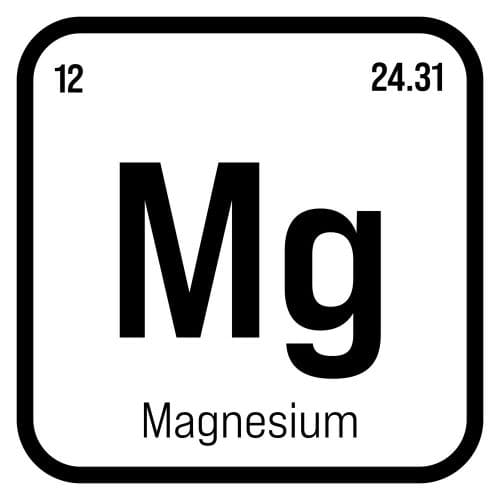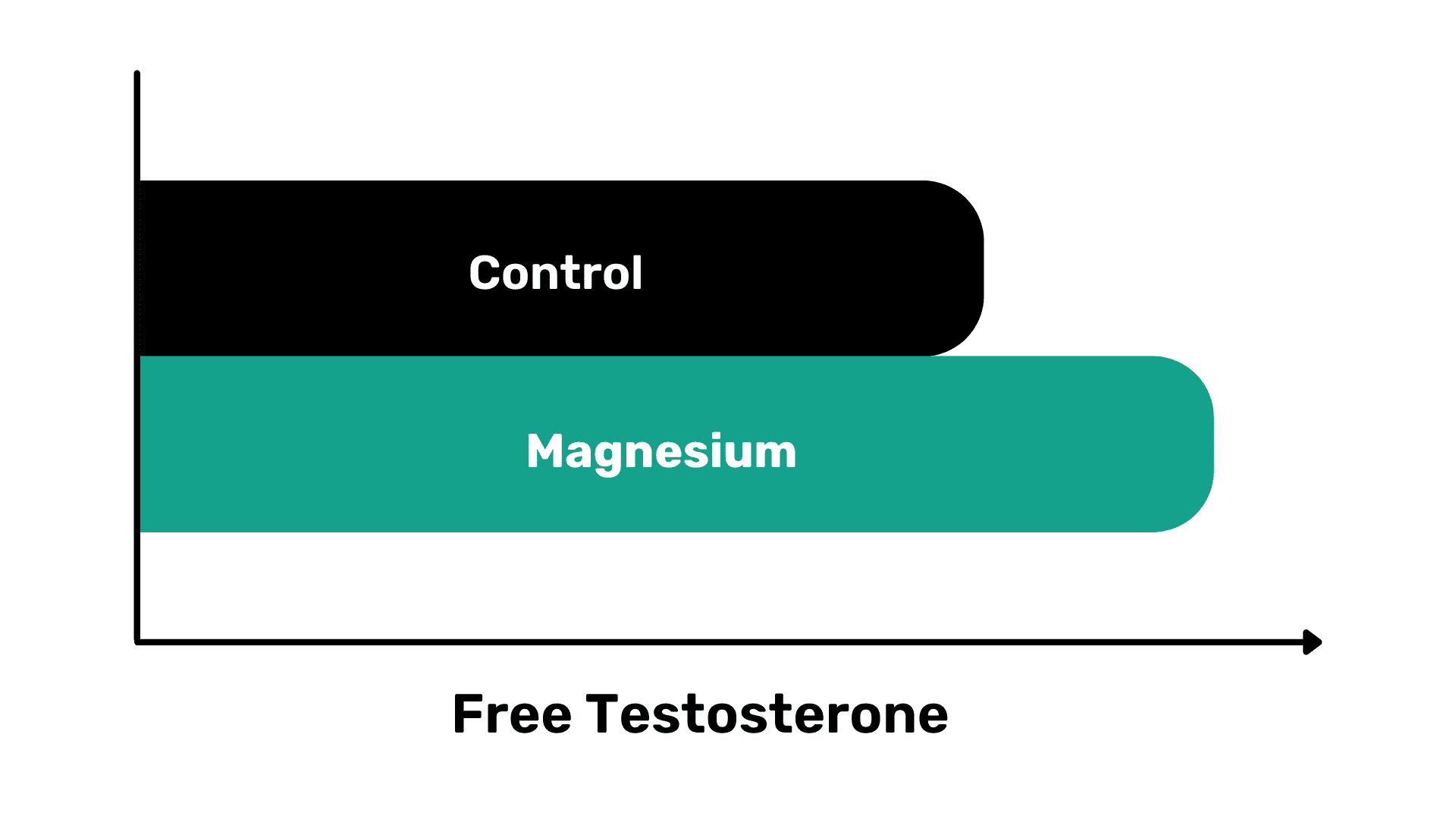
How ZMA Can Boost Your Immune System
Wondering how to boost your immune defences and fight against illness? Discover the science of ZMA and how it can help your immune system.

Welcome to our in-depth exploration of magnesium, a humble micronutrient with far-reaching implications for human health. As the fourth most abundant mineral in our bodies, magnesium’s significance cannot be overstated, with its touch felt in over 300 enzymatic reactions. Despite this, magnesium deficiency is a widespread issue, leading to a cascade of health problems across the globe.
In this blog, we delve into the essential roles of magnesium, including energy production, muscle function, bone health, and more. Significantly, we’ll highlight its crucial role in testosterone production and efficacy, discussing how maintaining optimal levels can boost overall health, performance, and well-being.

Magnesium is a chemical element, designated by the symbol Mg on the periodic table, with an atomic number of 12. In its pure form, it’s a shiny, silvery-white metal that’s lighter than aluminium and robust enough to be used in various industrial applications.
However, within the body, magnesium exists in ionic form, commonly paired with other molecules, which allows it to readily participate in the complex biochemistry of life. It is a micronutrient mineral that is essential for numerous bodily functions, being the fourth most abundant mineral in the human body and involved in over 300 enzymatic reactions.
In supplement form we typically find it combined with other elements to make the following compounds:

The Institute of Medicine, Food and Nutrition Board define the Recommended Dietary Allowance (RDA) of magnesium as 400mg per day for men between 19-30 years old, and 420mg per day for men over 31 years old.
As the RDA is the daily intake of a nutrient considered sufficient to meet the requirements of 97.5% of healthy individuals, daily intake values below 400-420mg pose potential increased risks to health to 97.5% of men.
Low levels are a problem internationally. One study considered the magnesium deficiency levels across the world, the negative effects they were having on cardiovascular diseases, and that it was potentially leading to public health crises. They determined that magnesium deficiency was a problem for the majority of populations in numerous countries worldwide.

Magnesium can be obtained through various foods:
While people can get magnesium from food, lots of people do not get enough. Instead, people can take magnesium supplements to help them optimise their health and remain in their prime.

Magnesium has been shown to have multiple positive benefits to human health. They can be summarised with the following sections.
Magnesium has been shown to play crucial role in energy production. It is a cofactor in more than 300 enzymatic reactions, including those involved in ATP synthesis, the primary source of cellular energy. It acts as a facilitator, enabling key biochemical reactions necessary for efficient energy production and fuelling the body’s functions.
Magnesium’s role in ATP synthesis underscores its importance in activities requiring swift and substantial energy expenditure, such as exercise or strenuous physical work. Moreover, magnesium aids in the transport of ions across cell membranes, which is essential for the conduction of nerve impulses, muscle contraction, and normal heart rhythm, all of which demand a constant and regulated energy supply.
By maintaining sufficient magnesium levels we can boost physical performance, improve energy efficiency, and support the body’s natural resilience against fatigue and stress.
Magnesium also has been shown to have a significant impact on muscle and nerve function. This mineral is indispensable for proper muscle contraction and relaxation, which are essential for athletic performance, physical exertion, and even everyday movements.
Magnesium ions regulate the activity of calcium channels, ensuring the appropriate flow of calcium into muscle cells and allowing for the triggering of muscle contractions. As mentioned above, it is also involved in the activation of ATP, facilitating the release of energy for muscle contractions.
By maintaining adequate magnesium levels, individuals can optimize their muscle function, potentially reducing the risk of muscle cramps, spasms, and injuries, while improving overall athletic performance and endurance. With optimised performance we enable easier growth and maintenance of muscle mass.
Bone health has also been shown to have a relationship with maintaining healthy levels of magnesium. It plays a pivotal role in bone mineralization, as it supports the absorption and utilization of calcium and vitamin D, the primary nutrients involved in maintaining strong and healthy bones.
By ensuring sufficient magnesium intake, individuals can provide their bodies with the necessary foundation for maintaining optimal bone density and strength throughout life, reducing the risk of conditions such as osteoporosis and fractures.
Magnesium has been found to help alleviate anxiety and stress, potentially contributing to better mental well-being, while also ensuring that neurotransmission and brain function is optimised. The electrolyte acts as a key modulator of neurotransmitters, influencing the release and activity of proper transmission of electrical impulses in the brain.
By maintaining adequate magnesium levels, individuals can support proper neurotransmitter function, promoting overall cognitive function, learning, and memory, and potentially reducing the risk of anxiety disorders, depression, and other mood-related medical conditions.
Magnesium plays a crucial role in reducing oxidative stress and inflammation in the body. It acts as a cofactor for antioxidant enzymes, helping neutralize harmful free radicals and protect cells from damage. It also regulates the production of inflammatory markers, such as cytokines and CRP.
Studies have shown that magnesium supplementation can reduce markers of oxidative stress and inflammation. By reducing these, numerous health risks can be reduced and overall health improved.
Magnesium’s relationship with heart health has been investigated in depth. Research indicates that magnesium supplementation may reduce the risk of cardiovascular disease and heart disease. It helps regulate high blood pressure by promoting the relaxation of blood vessels and inhibiting vascular smooth muscle contraction. It also improves endothelial function, enhancing the health and flexibility of blood vessels, and reducing inflammation within the cardiovascular system.
By ensuring sufficient magnesium intake, individuals can potentially prevent heart-related complications, including hypertension, coronary artery disease, and stroke.
Research of magnesium supplementation has demonstrated significant improvements in sleep quality among the participants. Adequate intake is believed to contribute to better sleep patterns, including improved sleep initiation, maintenance, and overall restfulness.
By promoting better sleep, magnesium supplementation offers the potential for enhanced rejuvenation and overall well-being. Incorporating sufficient amounts into one’s diet via supplements can enhance sleep quality and subsequently optimise health.
Magnesium has been found to play a pivotal role in the endocrine system, testosterone production, its efficacy in the body, and male sexual function. It is instrumental in the biosynthesis of testosterone, acting as a vital cofactor in the enzymatic reactions involved in hormone production.
Research suggests that adequate magnesium intake may support healthy testosterone levels, thus contributing to improved muscle development, mood, energy levels, and overall male reproductive health.
Several studies have investigated the relationship between magnesium and testosterone. the results can be summarised as follows:

The ways magnesium increases low testosterone levels and its efficacy are detailed as follows.
The majority of circulating testosterone is bound to Sex Hormone-Binding Globulin (SHBG). It binds to testosterone molecules and transports it around the body, but in doing so makes it significantly less bioavailable. By reducing the amount of testosterone bound to SHBG, testosterone remains free and more bioavailable, and therefore more effective.
Magnesium has been shown to reduce the binding of Testosterone to SHBG, and in doing so, increase bioavailable testosterone levels. A study from 2009 investigated the effect it had on hormone levels. It found magnesium inhibited the binding of testosterone to SHBG, and in doing so increased bioavailable testosterone levels.
Oxidative stress has been shown to have correlations to low testosterone levels. With increasing oxidative stress comes decreased levels of the sex hormone.
It does this through impairing steroidogenesis by inhibiting leydig cells’ production of testosterone. Leydig cells create testosterone from cholesterol in a process labelled steroidogenesis. As leydig cells are sensitive to oxidative stress, increases in it impair leydig cells’ capability to produce testosterone.
Magnesium has been shown to decrease oxidative stress.
Studies have measured the effect magnesium deficiency has on free radicals, and how it can increase oxidative stress damage and decrease helpful antioxidant activity. Other studies have also shown that with lower oxidative stress comes higher testosterone levels.
By ensuring we consume sufficient amounts of magnesium, oxidative stress can be reduced, and testosterone levels optimised.
Inflammation has also been shown to have a correlation to testosterone levels, with higher inflammation levels leading to lower testosterone levels.
This could be through the impact inflammation has on the Hypothalamic–Pituitary–Gonadal (HPG) axis. Chronic inflammation has been shown to reduce the amount of luteinizing hormone released (the signal sent from the pituitary gland to the testes to produce testosterone) and sensitivity of luteinizing hormone in leydig cells (cells that create testosterone from cholesterol).
Magnesium has been shown to decrease inflammation.
Studies have demonstrated that magnesium deficiency increases inflammation. As a result, a magnesium deficiency can lead to low testosterone levels.
The quality and quantity of sleep each person gets is linked to numerous health markers. Simply put, people need adequate sleep to remain healthy.
Testosterone levels and sexual health have also been shown to be directly correlated to sleep quality and quantity. Low testosterone levels can be increased by enhancing sleep quality and the amount of time we sleep.
Magnesium has been shown to enhance how long and well people sleep.
By supplementing with magnesium, we can improve the amount of sleep we get and the quality of it, thereby enhancing sex hormone regulation and helping to rectify testosterone deficiency.

In summary, we have discussed how magnesium is an essential micronutrient in the human diet, and its wide range of health benefits. It can be obtained through food or supplements.
Benefits include enhanced energy production, improved muscle function, optimized bone health, reduced oxidative stress and inflammation, optimized heart health, enhanced sleep quality, and improved testosterone levels.
Low magnesium levels are a global issue, potentially leading to public health crises.
It also plays a key role in testosterone production and efficacy. Studies have shown that supplementation can significantly increase free and total testosterone levels. This is achieved by reducing sex hormone-binding globulin (SHBG), decreasing oxidative stress and inflammation, and enhancing sleep quality. Therefore, sufficient intake is essential for maintaining optimal health and well-being.
Make sure you have an adequate level of magnesium everyday with ZMAN+.


Wondering how to boost your immune defences and fight against illness? Discover the science of ZMA and how it can help your immune system.

Learn how ZMA can transform your muscle recovery and athletic performance, allowing you to reach your health goals

Studies have shown that testosterone levels are falling. Read this to find out why and what can be done to fix it.

Discover how Vitamin B6 reduces fatigue through energy metabolism, with key facts and intake recommendations.

Complete the form NOW to receive the free ebook and take on the challenge.